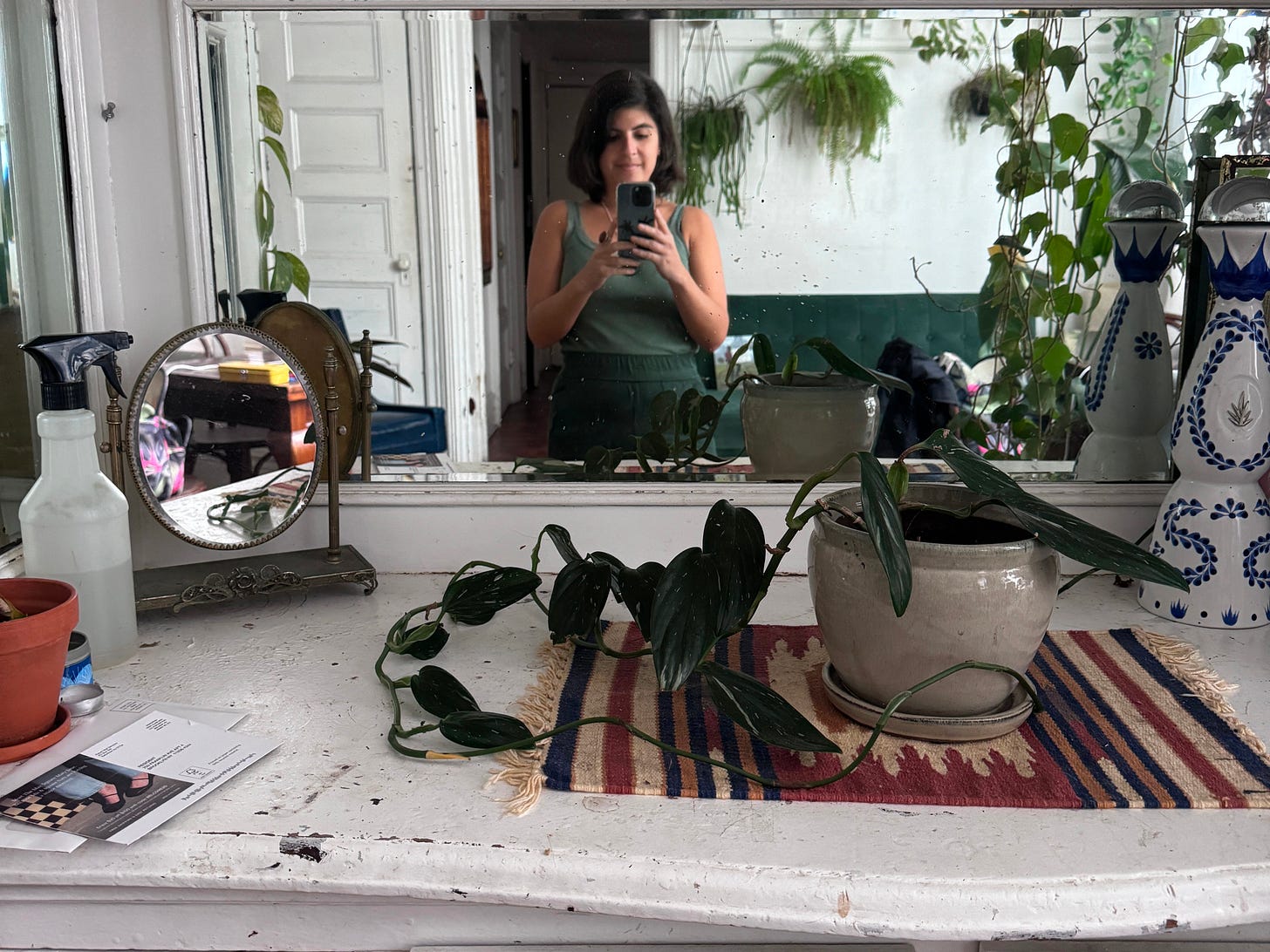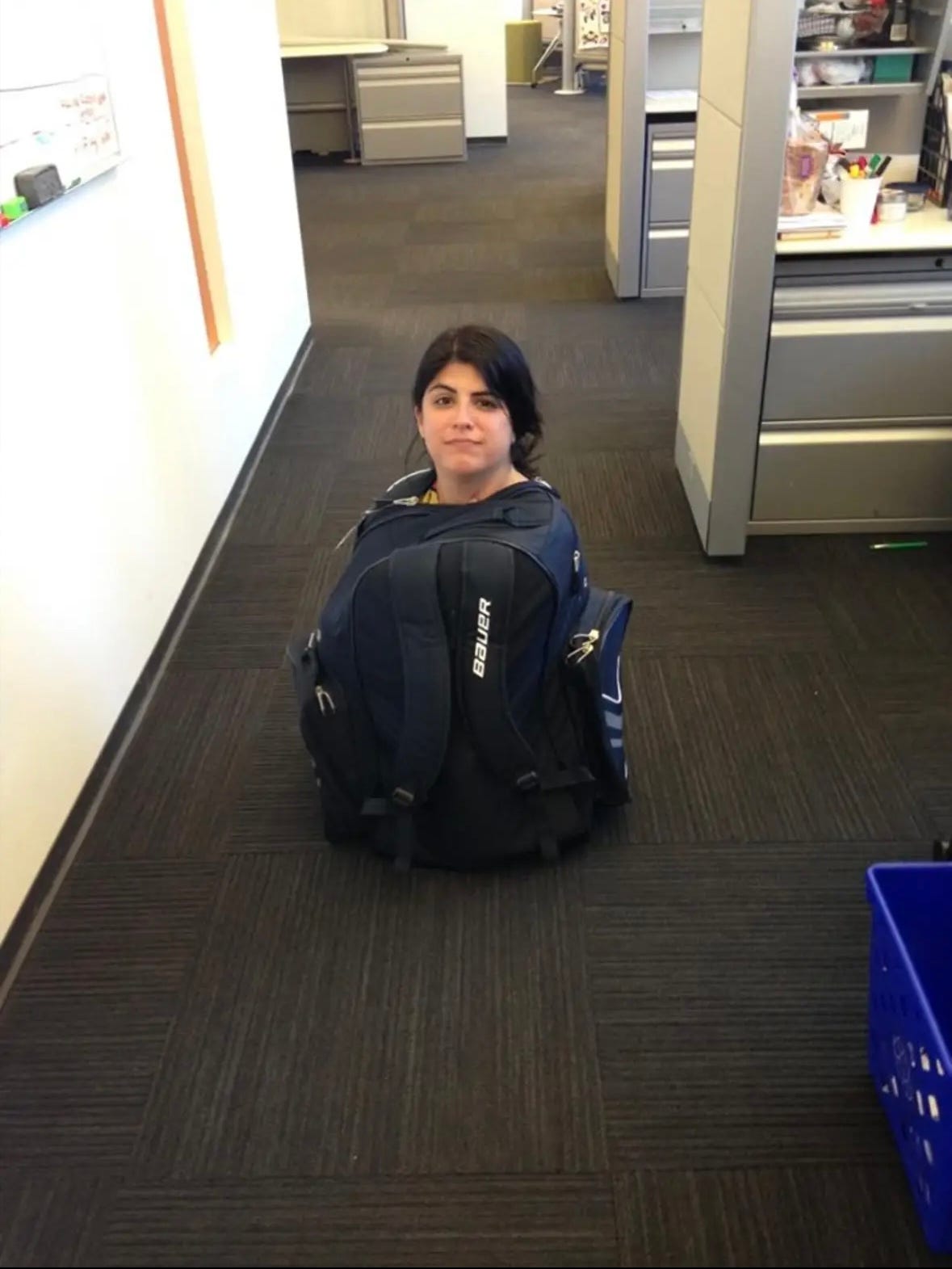"One day, I woke up and realized I had a writing career." — Ines Bellina
Creative Dialogue #16
Creative Dialogues is an ongoing project to learn from fellow artists. I’ve interviewed an astonishingly wonderful variety of creative individuals about their art, creative practices, and how they make it all work. I send every participant a list of questions about creativity and the creative practice. They respond to the five questions that resonate most, so every interview reflects the artist’s own curiosities and interests.
Today’s interview is with
, author of .
Since giving office jobs the finger in 2018, has managed to make a living strictly as a wordsmith through a combination of content marketing, translation work, and the kind of writing dubbed cool by the cool kids. This means bylines in The Cut, Saveur, Gloria, Shondaland, Daily Beast, The A.V. Club, Chicago Magazine, The Takeout, Wine Enthusiast, and more. She has also co-authored a bilingual photography book and co-translated Desolación, a poetry collection by Nobel Laureate Gabriela Mistral.
Her writing has received support from the Tin House Summer Workshop, Ragdale, the Sundress Academy for the Arts, and the Wedding Cake House Residency. In 2020 she won SCBWI’s Emerging Voices Award and a DCASE grant from the City of Chicago. She describes herself as the most accomplished unknown writer you know lol.
—
When did you first realize you were a writer?
Not to sound too precious, but I’ve been a writer since I learned how to write. As soon as I could spell out words, I’ve been writing journals, stories, essays, musings. Writing is a gnawing hunger that has stayed by my side even when I’ve had other childhood dreams—voice over actor, environmental lawyer, diplomat, etc. — and I don’t think it’ll ever go away. A blessing and a curse.

Have there been times when you felt out of touch with your creative self? If so, how did you rediscover your creativity?
There’s been several times when I’ve felt out of touch with my creative self, and it’s whenever I’ve had the double whammy of dealing with economic scarcity and emotional upheavals. I can be a starving artist with a great personal life or a stable-job-writing-on-the-side writer with terrible tragedies, but not a starving artist with rocky friendships, relationships, or family life. This is not romantic or pretty, but the way to rediscover it was to get out of whatever situation was creating such chaos. Sometimes that meant dumping the dude or getting a better gig.
A lot of writers are told to stay in their niche… While I was toiling away at novels that never saw the light of day, I also wrote personal essays and pitched articles to publications, mostly cultural criticism and reported pieces. One day, I woke up and realized I had a writing career — a creative non-fiction one. Write what you want to write!
What is one thing you’d tell your younger self about building a creative practice?
I would tell myself that discipline and persistence count for a lot more than talent. I’ve been fortunate to have developed the latter pretty early on, but it wasn’t until I devoted time to my writing — real, constant, hard work — that I was able to publish anything.
It requires a lot of patience. Everything takes forever: finding a place to submit your piece or work, revisions, publishing. But above all, you have to be patient with yourself and with the work. Let it breathe so you can give it your best.

Discipline and persistence count for a lot more than talent. I’ve been fortunate to have developed the latter pretty early on, but it wasn’t until I devoted time to my writing — real, constant, hard work — that I was able to publish anything.
What is the worst creative advice you’ve ever heard? What would you say instead?
A lot of writers are told to stay in their niche. Pick a genre or a topic. Focus on that until you “make it”. I tried that for the bulk of a decade. I was convinced that if I just stuck with YA, I would eventually become a conventionally successful, published, award-winning author. Thankfully, while I was toiling away at novels that never saw the light of day, I also wrote personal essays and pitched articles to publications, mostly cultural criticism and reported pieces. One day, I woke up and realized I had a writing career — a creative non-fiction one. Write what you want to write!

What is one thing this community can do to support you and your work?
Please follow or subscribe to The Cranky Guide! It’s become my main platform for sharing all my writing and offers a glimpse into what adulthood is like when you’ve decided on a non-traditional path — no marriage, no kids, no cubicle, no property. It has its challenges, but I love my unbound, nomadic, creative life.
Any final thoughts on creativity you’d care to leave us with?
There are many ways to be creative. I think you can be creative even within the confines of daily life — making a good meal, choosing colorful pens for notes, adding a touch of whimsy to your wardrobe. Small actions can lead to even bigger swings. Don’t be afraid to start with a tiny step.
Everything takes forever: finding a place to submit your piece or work, revisions, publishing. But above all, you have to be patient with yourself and with the work. Let it breathe so you can give it your best.
More ways to support Ines:
Subscribe to
Hire Ines to write something for you!







I found this insightful and wish Ines every continued success.